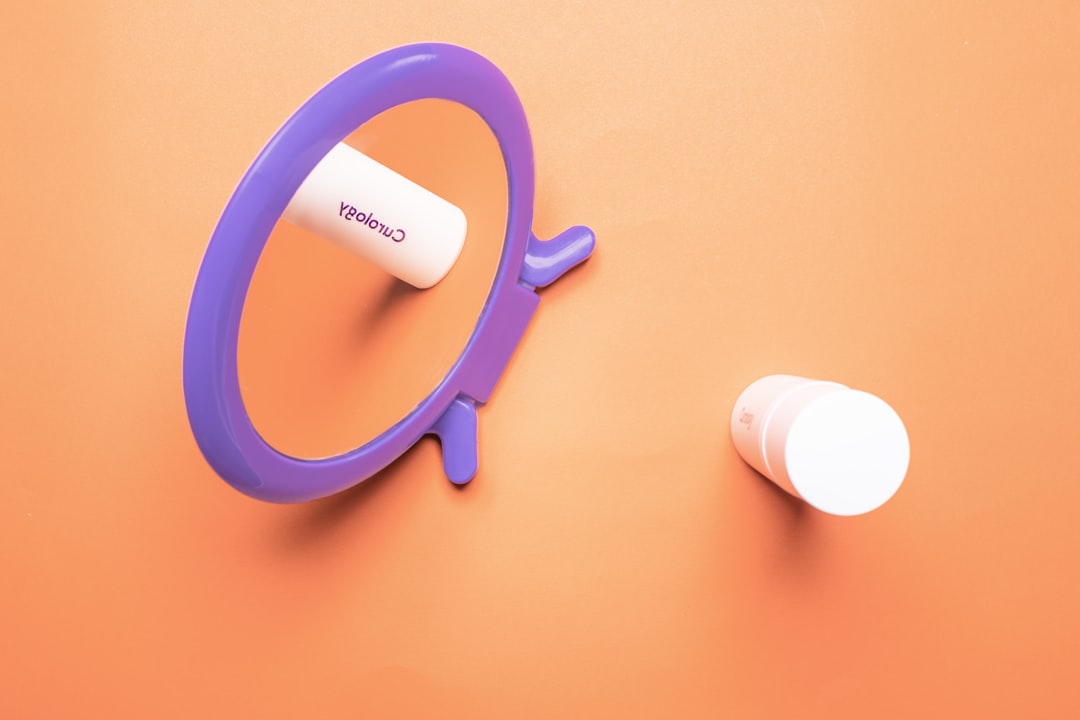
Boosting Hormones: Women’s Supplement Options
Hormones play a crucial role in women’s health. They are chemical messengers that regulate various bodily functions, including metabolism, reproduction, mood, and sleep. Hormonal imbalances can have a significant impact on a woman’s overall well-being, leading to a range of symptoms and health issues. Maintaining hormonal balance is essential for optimal health and vitality. In this article, we will explore the importance of hormones in women’s health, common hormonal imbalances, and natural ways to boost hormones. We will also discuss the role of supplements in hormone regulation and provide recommendations for the top hormone-boosting supplements for women.
Key Takeaways
- Hormones are chemical messengers that regulate various bodily functions.
- Common hormonal imbalances in women include PCOS, thyroid disorders, and menopause.
- Hormonal balance is crucial for women’s overall health, including reproductive health, mood, and energy levels.
- Natural ways to boost hormones include exercise, stress management, and a healthy diet.
- Supplements can help regulate hormones, but it’s important to choose the right one and be aware of potential risks and side effects.
Understanding Hormones: A Brief Overview
Hormones are chemical substances produced by glands in the endocrine system. They are released into the bloodstream and travel to various organs and tissues in the body, where they exert their effects. There are several types of hormones, including estrogen, progesterone, testosterone, thyroid hormones, and cortisol.
Estrogen is the primary female sex hormone responsible for the development and regulation of the female reproductive system. It also plays a role in bone health and cardiovascular function. Progesterone works in conjunction with estrogen to regulate the menstrual cycle and prepare the body for pregnancy. Testosterone is often thought of as a male hormone but is also present in women and contributes to libido and muscle mass.
Thyroid hormones regulate metabolism, energy production, and body temperature. Cortisol is known as the stress hormone and helps the body respond to stress by increasing blood sugar levels and suppressing the immune system.
Hormones play a vital role in women’s health by regulating menstrual cycles, fertility, mood, energy levels, and overall well-being. When hormones are imbalanced or disrupted, it can lead to a range of symptoms and health issues.
Common Hormonal Imbalances in Women
Hormonal imbalances occur when there is an excess or deficiency of certain hormones in the body. Several factors can contribute to hormonal imbalances, including stress, poor diet, lack of exercise, and certain medical conditions.
Some common hormonal imbalances in women include:
1. Polycystic Ovary Syndrome (PCOS): PCOS is a hormonal disorder characterized by enlarged ovaries with small cysts. It can cause irregular periods, infertility, weight gain, acne, and excessive hair growth.
2. Hypothyroidism: Hypothyroidism occurs when the thyroid gland does not produce enough thyroid hormones. Symptoms include fatigue, weight gain, depression, and cold intolerance.
3. Hyperthyroidism: Hyperthyroidism is the opposite of hypothyroidism and occurs when the thyroid gland produces too much thyroid hormone. Symptoms include weight loss, rapid heartbeat, anxiety, and heat intolerance.
4. Menopause: Menopause is a natural process that occurs when a woman’s reproductive years come to an end. It is characterized by a decline in estrogen and progesterone levels and can cause symptoms such as hot flashes, mood swings, and vaginal dryness.
5. Adrenal Fatigue: Adrenal fatigue is a condition that occurs when the adrenal glands are unable to produce enough cortisol in response to chronic stress. Symptoms include fatigue, insomnia, weight gain, and difficulty handling stress.
The Importance of Hormonal Balance for Women’s Health
| Metrics | Importance |
|---|---|
| Regular menstrual cycle | Indicates hormonal balance and overall reproductive health |
| Mood stability | Proper hormonal balance can help regulate mood and reduce risk of depression and anxiety |
| Bone health | Estrogen plays a key role in maintaining bone density and reducing risk of osteoporosis |
| Sexual function | Proper hormonal balance can improve libido and reduce risk of sexual dysfunction |
| Weight management | Hormonal imbalances can contribute to weight gain and difficulty losing weight |
| Cardiovascular health | Estrogen helps protect against heart disease and stroke in women |
Maintaining hormonal balance is crucial for women’s health and well-being. When hormones are in balance, the body functions optimally, and women experience regular menstrual cycles, healthy fertility, stable moods, and overall vitality.
On the other hand, hormonal imbalances can have negative effects on women’s health. They can disrupt menstrual cycles, leading to irregular periods or even infertility. Hormonal imbalances can also cause mood swings, depression, anxiety, and low libido. In addition, imbalances in estrogen levels can increase the risk of certain health conditions, such as osteoporosis and cardiovascular disease.
Achieving and maintaining hormonal balance is essential for women to feel their best and prevent potential health issues. Fortunately, there are natural ways to boost hormones and restore balance in the body.
Natural Ways to Boost Hormones in Women
There are several lifestyle changes that women can make to naturally boost their hormones and promote hormonal balance. These changes include adopting a healthy diet, engaging in regular exercise, and managing stress effectively.
1. Diet: A healthy diet is crucial for hormonal health. Include plenty of fruits, vegetables, whole grains, lean proteins, and healthy fats in your diet. Avoid processed foods, sugary snacks, and excessive caffeine and alcohol consumption. Certain foods, such as flaxseeds, soy products, and cruciferous vegetables (broccoli, cauliflower, cabbage), can help balance estrogen levels.
2. Exercise: Regular exercise is beneficial for hormone regulation. Engage in activities that you enjoy, such as walking, jogging, swimming, or yoga. Aim for at least 30 minutes of moderate-intensity exercise most days of the week.
3. Stress Management: Chronic stress can disrupt hormone balance. Practice stress management techniques such as deep breathing exercises, meditation, yoga, or journaling. Make time for activities that you find relaxing and enjoyable.
The Role of Supplements in Hormone Regulation
In addition to lifestyle changes, supplements can also play a role in hormone regulation. Hormone-boosting supplements are designed to support the body’s natural hormone production and balance.
These supplements often contain herbs, vitamins, minerals, and other natural ingredients that have been shown to have hormone-balancing effects. They can help alleviate symptoms of hormonal imbalances and promote overall well-being.
Supplements can be a convenient and effective way to support hormonal health, especially when combined with lifestyle changes. However, it is important to choose high-quality supplements from reputable brands and consult with a healthcare professional before starting any new supplement regimen.
Top Hormone-Boosting Supplements for Women
There are several hormone-boosting supplements available on the market that can help support women’s hormonal health. Here are some of the top supplements:
1. Maca Root: Maca root is a Peruvian herb that has been used for centuries to support hormonal balance. It is rich in vitamins, minerals, and amino acids and has been shown to help regulate menstrual cycles, improve fertility, and alleviate symptoms of menopause.
2. Vitex (Chasteberry): Vitex is an herb that has been used for centuries to support women’s hormonal health. It helps regulate the menstrual cycle, reduce PMS symptoms, and promote fertility.
3. Black Cohosh: Black cohosh is a herb that has been traditionally used to alleviate symptoms of menopause, such as hot flashes and mood swings. It works by balancing estrogen levels in the body.
4. Evening Primrose Oil: Evening primrose oil is rich in gamma-linolenic acid (GLA), an omega-6 fatty acid that helps regulate hormone production and reduce inflammation. It can help alleviate symptoms of PMS and menopause.
5. Ashwagandha: Ashwagandha is an adaptogenic herb that helps the body adapt to stress and balance hormone levels. It can help reduce cortisol levels, improve mood, and support overall well-being.
These are just a few examples of hormone-boosting supplements available on the market. It is important to choose supplements that are appropriate for your specific needs and consult with a healthcare professional before starting any new supplement regimen.
How to Choose the Right Supplement for Your Hormonal Needs
When choosing a hormone-boosting supplement, there are several factors to consider:
1. Quality: Look for supplements from reputable brands that adhere to good manufacturing practices (GMP) and have undergone third-party testing for quality and purity.
2. Ingredients: Read the ingredient list carefully and look for supplements that contain natural, high-quality ingredients. Avoid supplements that contain artificial additives, fillers, or preservatives.
3. Dosage: Follow the recommended dosage instructions provided by the manufacturer. It is important not to exceed the recommended dosage unless advised by a healthcare professional.
4. Individual Needs: Consider your specific hormonal needs and choose a supplement that targets those needs. For example, if you are experiencing symptoms of menopause, look for supplements that specifically address menopausal symptoms.
5. Consultation: It is always a good idea to consult with a healthcare professional before starting any new supplement regimen, especially if you have any underlying health conditions or are taking medications.
The Benefits of Hormone-Boosting Supplements for Women
Hormone-boosting supplements can offer several benefits for women’s health:
1. Hormonal Balance: Supplements can help regulate hormone levels and restore balance in the body. This can alleviate symptoms of hormonal imbalances and promote overall well-being.
2. Symptom Relief: Many women experience symptoms such as hot flashes, mood swings, and fatigue due to hormonal imbalances. Hormone-boosting supplements can help alleviate these symptoms and improve quality of life.
3. Fertility Support: For women trying to conceive, hormone-boosting supplements can help regulate menstrual cycles and improve fertility.
4. Natural Approach: Hormone-boosting supplements offer a natural approach to hormone regulation without the need for synthetic hormones or medications.
Potential Risks and Side Effects of Hormone-Boosting Supplements
While hormone-boosting supplements can be beneficial for women’s health, it is important to be aware of potential risks and side effects:
1. Allergic Reactions: Some individuals may be allergic to certain ingredients in supplements. It is important to read the ingredient list carefully and discontinue use if any allergic reactions occur.
2. Interactions with Medications: Certain supplements may interact with medications, including hormonal contraceptives and blood thinners. It is important to consult with a healthcare professional before starting any new supplement regimen, especially if you are taking medications.
3. Hormonal Imbalance: Taking hormone-boosting supplements without proper guidance or monitoring can potentially lead to further hormonal imbalances. It is important to follow the recommended dosage instructions and consult with a healthcare professional if you have any concerns.
4. Quality Concerns: Not all supplements on the market are of high quality. It is important to choose supplements from reputable brands that have undergone third-party testing for quality and purity.
To minimize the risks of using hormone-boosting supplements, it is important to choose high-quality supplements, follow the recommended dosage instructions, and consult with a healthcare professional before starting any new supplement regimen.
Combining Supplements with Lifestyle Changes for Optimal Hormonal Health
While hormone-boosting supplements can be beneficial for hormonal health, they work best when combined with lifestyle changes. By making healthy lifestyle choices, women can support their hormonal health and enhance the effects of supplements.
Here are some tips for combining supplements with lifestyle changes for optimal hormonal health:
1. Follow a Healthy Diet: A healthy diet is crucial for hormonal health. Focus on whole, nutrient-dense foods and avoid processed foods and excessive sugar consumption. Incorporate hormone-balancing foods such as flaxseeds, soy products, and cruciferous vegetables into your diet.
2. Engage in Regular Exercise: Regular exercise helps regulate hormones and promotes overall well-being. Find activities that you enjoy and aim for at least 30 minutes of moderate-intensity exercise most days of the week.
3. Manage Stress: Chronic stress can disrupt hormone balance. Practice stress management techniques such as deep breathing exercises, meditation, or yoga. Make time for activities that you find relaxing and enjoyable.
4. Get Adequate Sleep: Sleep is essential for hormone regulation. Aim for 7-9 hours of quality sleep each night. Establish a bedtime routine and create a sleep-friendly environment.
By combining supplements with healthy lifestyle changes, women can optimize their hormonal health and experience the full benefits of hormone-boosting supplements.
Hormones play a crucial role in women’s health, regulating various bodily functions and contributing to overall well-being. Maintaining hormonal balance is essential for optimal health and vitality. Hormonal imbalances can lead to a range of symptoms and health issues, but there are natural ways to boost hormones and restore balance in the body.
Supplements can be a convenient and effective way to support hormonal health, but it is important to choose high-quality supplements from reputable brands and consult with a healthcare professional before starting any new supplement regimen. By combining supplements with lifestyle changes such as a healthy diet, regular exercise, stress management, and adequate sleep, women can optimize their hormonal health and experience the full benefits of hormone-boosting supplements.
Remember, everyone’s hormonal needs are unique, so it is important to listen to your body and work with a healthcare professional to determine the best approach for your specific needs. With the right combination of supplements and lifestyle changes, women can achieve optimal hormonal balance and enjoy improved overall health and well-being.
FAQs
What are women’s hormone supplements?
Women’s hormone supplements are products that contain hormones such as estrogen, progesterone, and testosterone. These supplements are designed to help women manage symptoms related to hormonal imbalances, such as hot flashes, mood swings, and low libido.
What are the benefits of taking women’s hormone supplements?
Women’s hormone supplements can help alleviate symptoms of menopause, such as hot flashes, night sweats, and vaginal dryness. They can also improve bone density, reduce the risk of osteoporosis, and improve overall quality of life.
Are there any risks associated with taking women’s hormone supplements?
Yes, there are some risks associated with taking women’s hormone supplements. These include an increased risk of breast cancer, blood clots, stroke, and heart disease. Women who have a history of these conditions should talk to their doctor before taking hormone supplements.
What types of women’s hormone supplements are available?
There are several types of women’s hormone supplements available, including estrogen-only supplements, progesterone-only supplements, and combination supplements that contain both estrogen and progesterone. There are also supplements that contain testosterone, which can help improve libido and energy levels.
Do women need a prescription to take hormone supplements?
It depends on the type of hormone supplement. Estrogen-only supplements are available over-the-counter, but combination supplements and progesterone-only supplements require a prescription. Testosterone supplements also require a prescription.
How should women take hormone supplements?
Women should follow the instructions on the label or as directed by their doctor. Hormone supplements are available in various forms, including pills, patches, creams, and gels. Women should take the lowest effective dose for the shortest amount of time possible to minimize the risk of side effects.


















